
Ingrid Betancourt was kissed by her daughter, Mélanie, as her son, Lorenzo, looked on at the airport in Bogota, Colombia on Wednesday.



En un emotivo reencuentro en Bogotá, Betancourt se fundió en abrazos y lágrimas con Melanie y Lorenzo Delloye, que llegaron desde París [Efe]
Bogotá.- Tomados de la mano, felices, radiantes, juntos, así fueron las primeras imágenes del reencuentro de la familia Delloye-Betancourt.
Tras el primer abrazo y de compartir un momento íntimo en el interior del avión que trasladó a los hijos de la recién rescatada Ingrid Betancourt-Melanie y Lorenzo-los tres enlazados se acercaron a dar sus primeras impresiones ante la prensa reunida en el aeropuerto militar de Catam, al oeste de la capital colombiana.
"Después de 7 años de no verlos esto debe ser el nirvana, el paraíso, eso debe ser algo muy parecido a lo que estoy sintiendo en este momento. Le doy gracias a Dios por este momento tan bello y les agradezco a todos ustedes de compartirlo con nosotros. Estos son mis niñitos, mi orgullo, mi razón de vivir, mi luz, mi luna, mis estrellas, por ellos seguí con ganas de salir de esa selva, por volverlos a ver", dijo la emocionada madre, sin soltar ni por un momento a sus hijos.
En el Airbus A-319 que llevará de regreso mañana viernes a Betancourt a París, viajaba una delegación de 30 personas, entre ellos la hermana de la ex rehén, Astrid Betancourt, su pequeño hijo, y varios diplomáticos y médicos, enter ellos el jefe de la diplomacia francesa Bernard Kouchner. La nave aterrizó exactamente a las 08H17 locales (13H17 GMT) de hoy en Santa Fé de Bogotá.
"Tan ellos y tan diferentes al mismo tiempo, me da pena pero me parecen muy hermosos, me parece que son muy lindos" y entre risas Betancourt admitió que 'a dios gracias' no se parecen a mi.
"Estoy muy orgullosa de ellos porque lucharon solitos y crecieron solitos en su angustia por no poder estar commigo, dieron una batalla y sacaron los recursos de su personalidad, desde el fondo de su alma", añadió para recordar con voz nostágica que la última vez que vio a sus hijos podía alzar a Lorenzo en brazos.
Melanie y Lorenzo, quienes empezaron a saludar a su madre desde las ventanillas del avión, dijeron que están viviendo el mejor momento de sus vidas.
"Siempre temimos un rescate militar, por los riesgos, pero ahora que vivimos esta felicidad queremos disfrutarla y vamos a seguir luchando por la libertad de los otros rehenes", señaló Melanie.
El único contacto que tuvieron los dos adolescentes con su madre durante los últimos años fue la radio, a través de la que enviaban mensajes y le contaban sobre sus actividades académicas y familiares.
Antes del aterrizaje
Ingrid, vestida de sastre negro y una larga clineja, momentos antes del arribo de la aeronave esperaba parada junto a su madre, rodeada de policías y diplomáticos franceses, la llegada del avión proveniente de Francia.
Apenas fue posible ambas subieron a recibir a los recién llegados para dar el primer y emocionado abrazo a los pasajeros. La escena absolutamente conmovedora seguramente arrancó lágrimas a más de un testigo. El abrazo también fue para el ex esposo Fabrice Delloye y el canciller francés.
El rescate de Betancourt, los estadounidenses Keith Stansell, Marc Gonsalves y Thomas Howes, así como de los efectivos de las Fuerzas Armadas colombianas se produjo en medio de la "Operación Jaque" en la que el Ejército infiltró y engañó a la guerrilla con un comando que se hizo pasar como integrantes de una organización humanitaria ficticia.
Según analistas, la operación debilita aún más a la guerrilla más antigua de América, que en el último año perdió a cinco de sus máximos comandantes en operaciones militares, incluido su "canciller" Raúl Reyes, mientras que cientos de sus combatientes han desertado.
Las FARC también perdieron en marzo a su fundador y máximo líder, Manuel Marulanda, quien murió de un ataque al corazón.
Con este rescate, las Fuerzas Armadas Revolucionarias Colombianas también perdieron su poder de presión a la hora de negociar. Los liberados eran considerados como los rehenes más valiosos en poder del grupo rebelde, recordó la agencia Reuters.
Mariemma Ramos Nava
eluniversal.com
Con mariachis reciben a militares rescatados de las FARC en Colombia
Bogotá.- Los militares rescatados en un operativo del Ejército de Colombia, después de un prolongado secuestro en poder de las FARC, fueron recibidos hoy por sus compañeros en medio de canciones de mariachis como "El Ausente" y "El Rey".
Los siete efectivos del Ejército, vestidos impecablemente con uniforme camuflado, con el cabello corto y acompañados por los altos mandos militares, llegaron en medio de aplausos y vivas de las tropas en la sede del comando del Ejército en Bogotá, informó Reuters.
"Quiero agradecerles a todos ustedes por este recibimiento, no me lo esperaba, no podemos dar el brazo a torcer ahora que está el Ejército dando esos golpes tan contundentes a la guerrilla", dijo el teniente Juan Carlos Bermeo, quien permaneció cerca de ocho años secuestrado en la selva por las Fuerzas Armadas Revolucionarias de Colombia (FARC).
Los militares fueron rescatados junto con la ex candidata a la presidencia Ingrid Betancourt, tres estadounidenses y cuatro policías, en un operativo en el que fuerzas de inteligencia se infiltraron a la guerrilla y mediante un engaño lograron sacarlos en un helicóptero de una zona selvática.
Entre canción y canción el comandante del Ejército, general Mario Montoya, se fundió en emotivos abrazos con sus subalternos, que lucían con un mejor semblante después de la odisea por la que atravesaron.
"Esto demuestra el coraje de estos muchachos", dijo Montoya con la voz entrecortada y a punto de romper en llanto.
"Nos vamos a reunir con ellos para mirar el nuevo proyecto de vida que es fundamental en este momento, los que se quieran quedar se quedan, esta es la casa de ellos", afirmó el oficial, uno de los artífices de la operación, denominada "Jaque".
Los liberados en la operación del miércoles integraban un grupo de 40 personas, entre las que aún continúan retenidas un ex gobernador, un ex congresista y un ex diputado regional, así como otros 22 policías y militares.
El Universal
http://www.eluniversal.com/2008/07/03/chcol_ava_con-mariachis-recibe_03A1754399.shtml
Insulza: "El fin de las FARC ha comenzado"
Santiago.- El secretario general de la OEA, el chileno José Miguel Insulza, afirmó hoy que tras la liberación de la político franco-colombiana, Ingrid Betancourt, el fin de la guerrilla de las Fuerzas Armadas Revolucionarias de Colombia (FARC) ha comenzado.
"El fin de las FARC ha comenzado, porque éste es un golpe duro para ellos, porque han perdido legitimidad y gente", dijo Insulza, entrevistado desde Madrid por Televisión Nacional de Chile.
"Ha sido una operación notable y exitosa y que, lo más destacable, es que se realizó sin ninguna baja. Esto demuestra que el camino de la paz en Colombia está en marcha", agregó el ex ministro chileno.
El secretario general calificó además como un éxito personal del presidente colombiano, Alvaro Uribe, la operación de rescate, dijo AFP.
"Es algo que además de ser del Ejército, de los colombianos, de mucha gente, es un éxito de él, personal", señaló en otra entrevista con la Radio Cooperativa de Santiago.
La ex candidata presidencial Ingrid Betancourt fue rescatada el miércoles desde la selva colombiana en un operativo junto a otros 14 prisioneros, después de permanecer por más de seis años secuestrada por las FARC.
El Universal
http://www.eluniversal.com/2008/07/03/chcol_ava_insulza:-el-fin-de_03A1754199.shtml
Bogotá.- El nombre real de "César" es Gerardo Antonio Aguilar, del frente primero de las FARC, y es, según las autoridades, el auténtico carcelero de la organización guerrillera. Detenido en la operación en la que fue liberada la política franco-colombiana, Ingrid Betancourt.
Incluso, las autoridades consideraban que tenía un papel más relevante que el Martín Sombra como custodio de los plagiados, detenido por las fuerzas policiales. Tuvo la custodia de por lo menos 40 secuestrados, entre los que siempre figuraron los estadounidenses e Ingrid Betancurt, publicó el diario bogotano El Tiempo.
César habría sido la persona que ordenó la entrega de Enmanuel, el hijo de Clara Rojas, a una familia de campesinos.
Además manejaba la red logística de las FARC que en el oriente del país intercambiaba drogas por armas (en su mayoría fusiles AK-47) y equipos de comunicación (teléfonos satelitales, equipos GPS, radios UHF). También intercambiaba drogas ilegales por equipos y servicios médicos, como anticonceptivos y medicinas.
De esta red formaba parte su compañera sentimental, Luz Dary Conde Rubio, alias 'Doris Adriana', quien sucedió a Sonia, presa en los Estados Unidos.
Doris Adriana fue capturada por el Departamento Administrativo de Seguridad (DAS) hace tres meses.
Entre el prontuario de César figura la participación en el ataque con granada a una estación de Policía, en el barrio La Primavera, el 20 de enero del 2002. Un policía fue asesinado. Este delito lleva una pena de 40 años.
El Universal
http://www.eluniversal.com/2008/07/03/int_art_apresado-carcelero-d_930505.shtml
Oslo.- El noruego de origen colombiano Alf Onshuus Niño ha sido liberado por las guerrillas de las FARC casi seis meses después de haber sido secuestrado junto con otros cinco colombianos, entre ellos su novia, dijo hoy la cancillería en Oslo.
La portavoz de la cancillería, Kristin Melsom, confirmó que Niño, de 31 años, fue liberado el jueves por la mañana, pero destacó que su liberación no tenía relación con la audaz operación militar que rescató a Ingrid Betancourt y otros 14 rehenes el miércoles, informó AP.
``Esta liberación no tiene nada que ver con el rescate de Ingrid Betancourt. Es casualidad que sucedieran aproximadamente al mismo tiempo'', dijo Melsom.
Niño, de padre noruego y madre colombiana, vivía en Drammen, cerca de Oslo. Era profesor de matemática en la Universidad de Los Andes en Bogotá y fue secuestrado con los demás en enero mientras pasaba unas vacaciones en la costa del Pacífico.
``No queremos dar información sobre los detalles de su liberación'', dijo Melsom, quien tampoco pudo informar acerca de su estado de salud.
La prensa noruega había dicho que las FARC pidieron un rescate de 1 millón de coronas (200.000 dólares) y los parientes de Niño negociaban con ellos.
La novia de Niño, Ana Aldana Serrano, y los demás rehenes ya habían sido liberados.
El Universal
http://www.eluniversal.com/2008/07/03/chcol_ava_farc-libera-a-rehen_03A1754039.shtml
Hostages Freed in Colombia Returning Home
By SIMON ROMERO and ANAHAD O’CONNOR
CARACAS, Venezuela — The day after she was rescued in a daring operation by Colombian commandos, Ingrid Betancourt, the French-Colombian politician who was held hostage by leftist guerrillas, stood on an airport tarmac and embraced the family she had not seen in six years.
With tears streaming down her face, Ms. Betancourt, 46, wrapped her arms around her son, Lorenzo, and her daughter, Melanie, and recalled that when she last saw them they were small enough to hold in her arms. Now, six years later, the daughter Ms. Betancourt remembered as an adolescent girl was “dressed as a woman” and the once little boy nearly towered over her.
“Nirvana, paradise — that must be very similar to what I feel at this moment,” Ms. Betancourt told reporters at a news conference on the tarmac as she stood arm and arm with her children, who were flown to Bogotá from France overnight by the French government. “I have so many dreams I want to share with them.”
Ms. Betancourt thanked the governments that put together the clever plot to gain her freedom and urged them to continue working toward the release of those still being held by the FARC rebels in the jungles of Colombia.
Ms. Betancourt was one of 15 hostages, including three American contractors, who were spirited away to freedom on Wednesday after a group of Colombian commandos disguised themselves as rebels and tricked the guerrillas holding the captives into turning them over.
The three Americans were still awaiting reunions of their own. They arrived on American soil late Wednesday night after being flown by military plane from Colombia to Lackland Air Force Base in San Antonio, where they were undergoing medical examinations and awaiting meetings with their families on Thursday morning. The men — Marc Gonsalves, Thomas Howes, and Keith Stansell — were taking part in a counter-narcotics mission for the Pentagon in 2003 when their plane went down in the eastern jungles of Colombia, a dangerous region largely controlled by FARC guerrillas.
In a television interview early Thursday morning, George Gonsalves, the father of one of the rescued hostages, said he was leaving Connecticut on Thursday for Texas to see his son Marc, after hearing almost nothing about his health or status for five years.
“It’s been a long, long night,” he told CNN. “I haven’t gotten any updates. The only thing I’ve gotten right now is that he’s in fairly good health.”
“We have a lot to talk about,” he said.
Ms. Betancourt, who flew into Bogota on Wednesday, stepped off a military plane and hugged her elated mother and husband. The entire family was scheduled to board a flight for France later on Thursday.
“I never expected to get out of there alive,” Ms. Betancourt, her voice sounding frail but charged with excitement, said in her first comments on Wednesday night, which were broadcast on Colombian radio.
On Colombian television, Ms. Betancourt wept and smiled as she recounted a chain of events that seemed scripted for film, complete with Colombian agents infiltrating guerrilla camps and borrowing Israeli tracking technology to zero in on their target, before rescuing the 15 hostages.
A white painted helicopter — backed by dozens of others in the area — landed at the rebels’ jungle base at dawn, carrying military personnel masquerading as FARC members. Ms Betancourt said she was disappointed that they were not the aid workers she had expected. Looking at the helicopter crew members, who were wearing T-shirts emblazoned with images of Che Guevara, “I thought, this is FARC,” she said on television, and presumed they were part of a mission to transport the hostages to another location.
The captives were handcuffed and “humiliated,” then put on the helicopter accompanied by two guerrillas who were guarding them, Ms. Betancourt explained. But once the doors of the helicopter closed, Ms. Betancourt said, it was clear something unusual was happening.
The guerrillas were quickly overpowered by the crew and placed in handcuffs, including the commander, who went by the name “Caesar,” who had been her chief tormentor.
“Suddenly I saw the commander who, during four years, had been at the head of our team, who so many times was so cruel and humiliated me, and I saw him on the floor naked with bound eyes.”
At that point the hostages knew their long nightmare was over.
“The chief of operations said, ‘We are the national army and you are all free,’ and the helicopter almost fell because we started jumping, we screamed, we cried, we hugged. We couldn’t believe it.”
When her handcuffs were removed, Ms. Betancourt looked down at her former captor — their roles now reversed — and felt a mix of emotions. “I saw him on the floor,” she said. “I did not feel happiness, but what a shame.”
In Bogotá, after a joyful reunion with her mother, she thanked the military for an “impeccable operation.”
She looked healthy, especially in light of reports that she had been despondent recently and images showing her thin and distraught in a video captured from the FARC, or Revolutionary Armed Forces of Colombia.Taken captive in 2002 while she campaigned quixotically for the presidency, Ms. Betancourt, over her years as a hostage, became a symbol of suffering, courage and endurance.
The rescue was a major victory in Colombia’s struggle with the FARC, a Marxist-inspired insurgency that has been trying to topple the Colombian government for more than four decades.
Colombia’s defense minister, Juan Manuel Santos, said the captives, who also included 11 former members of Colombia’s security forces, were removed from the jungle on Wednesday by an elite commando unit in Guaviare after Colombian intelligence operatives infiltrated the FARC’s seven-member secretariat.
The United States was involved in the planning of the operation and provided “specific support,” the White House said. But officials there would not describe the nature of that support.
One American official who was briefed on the operation but spoke on the condition of anonymity confirmed the intelligence support to Colombia for the mission, but would not provide details.
Ms. Betancourt and the Americans were among more than 40 captives used by the FARC to bargain for political concessions. The rescue came during a period of fragmentation in the FARC after the killing and capture of several senior commanders in recent months.
The guerrillas are thought to hold hundreds of other abductees in jungle camps. The American ambassador to Colombia, William R. Brownfield, and the United States combatant commander in the region, Adm. James G. Stavridis, were “engaged in the planning stages,” according to Gordon D. Johndroe, the deputy White House press secretary.
“This was a Colombian-conceived and led operation; we supported the operation,” he said, adding, “This rescue was long in the planning, and we’ve been working with the Colombians for five years, since the hostages were taken, to free them from captivity.”
He said that President Bush was kept apprised of the planning and that he called after the rescue to congratulate President Álvaro Uribe, calling him “a strong leader.”
Senator John McCain of Arizona, the presumptive Republican presidential nominee, released a statement that said Mr. Uribe and Mr. Santos had briefed him about the operation on Tuesday night, during his visit to Colombia.
Late on Wednesday night, the French president, Nicolas Sarkozy, appeared on live television with Ms. Betancourt’s grown children and her sister.
“Ingrid is in good health,” Mr. Sarkozy said of Ms. Betancourt, who holds dual French and Colombian citizenship. “My first words would be to say how happy we are.”
He also asked the FARC “to stop this absurd and medieval conflict,” promising to take in all the FARC fighters who renounced violence.
In France, numerous groups were founded by artists and public intellectuals to support Ms. Betancourt’s cause, and as her health appeared to worsen her release became a priority for Mr. Sarkozy and his new government.
Mr. Sarkozy had made various appeals for her freedom, and in April, offered to go to the border to personally accept her release. He tried to work through the Venezuelan president, Hugo Chávez, and sent a French medical team by air to Colombia to wait for her.
In her years in Paris, Ms. Betancourt, the daughter of a diplomat and a beauty queen, lived a wealthy life, went to elite universities and married a career diplomat whom she had met when she was a student. But she returned to Bogotá in 1990 to start a political career after drug dealers assassinated a presidential candidate her mother knew. She divorced and later married a Colombian, Juan Carlos Lecompte.
Her two grown children took part in protests in Paris, where they lived with their father, her first husband. Ms. Betancourt’s 2001 autobiography, “Rage in the Heart,” was hailed in France as the story of a crusader against corruption and injustice.
In January, in a deal brokered by Mr. Chávez, the FARC freed Clara Rojas, 44, who was captured along with Ms. Betancourt, and Consuelo González de Perdomo, 57, a former Colombian lawmaker who was abducted in 2001.
During captivity Ms. Rojas bore a child, who was found to be living in foster care in Bogotá shortly before her release, and not with the guerrillas, as they had claimed.
After the discovery of the 3-year-old boy, Emmanuel, Colombian officials said Wednesday, they sensed disarray within the FARC and stepped up efforts to rescue the other captives. Hopes for the hostages’ freedom had increased after the death or surrender of several top leaders in recent months. In late May, the FARC’s senior leader, the legendary guerrilla Manuel Marulanda, was reported to have died of natural causes.Mr. Marulanda, whose real name was Pedro Antonio Marín, built a rebel army from the remnants of a rural guerrilla group. The FARC remains Latin America’s largest insurgency, with thousands of fighters.
Alfonso Cano, an urban intellectual from Bogotá, ascended to replace Mr. Marulanda, but the FARC has been weakened by the desertion or surrender of about 300 combatants a month, according to Colombian officials.
Although the guerrilla group retains substantial might from operations financed by cocaine exports and abductions, its apparent disintegration has drawn comparisons to that of the Shining Path, the once-fearsome Maoist insurgency in Peru that is now limited to several hundred combatants involved in drug trafficking in the Peruvian Amazon.
Last month, Colombian officials announced that the American contractors had been spotted in the jungle a few months earlier, but said that it had been impossible to attempt a rescue at the time. In the operation on Wednesday, Colombia’s military appears to have drawn inspiration from one of the FARC’s own most brazen actions, in which its combatants disguised themselves in 2002 as soldiers and abducted 13 lawmakers in Cali.
Six years later, Colombian agents infiltrated the FARC’s ranks and persuaded a guerrilla commander called Cesar to allow captives held in three groups to be united for a trip by helicopter to southern Colombia.
Ms. Betancourt suffered illnesses, pain and indignities during her captivity, but doggedly persisted in trying to escape. Toward the end of her six years as a hostage, Ms. Betancourt’s missives to the outside world showed signs of depression.
“I am tired of suffering, of carrying it within me every day, of lying to myself and of seeing that every day is the same hell as the one before,” she wrote in a 2007 letter to her mother, Yolanda Pulecio. In the letter Ms. Betancourt said, “These almost six years of captivity have shown me that I’m not as resistant, nor as brave, nor as intelligent, nor as strong as I had thought.
“I have fought many battles, I have tried to escape on several opportunities, I have tried to maintain hope, as one does keeping head above water. But mamita, I have been defeated.”
The letter was taken from rebel emissaries last Nov. 29, part of a package intended to prove to captives’ families that they were still alive.
In the letter, she also wrote of the death of her father, Gabriel Betancourt, who was well known in Colombia for his work educating the poor. He died a month after her kidnapping, and in her letter, Ms. Betancourt said the she longed “to be with my papito, whose mourning I have not been able to complete, because every day, for the last four years, I have cried over his death.”
And she spent much time writing about her two children in France, Mélanie and Lorenzo, and of how much she missed seeing them grow.
“I feel like the life of my children is on standby, waiting for me to be free, and their daily suffering makes death seem like a sweet option,” she wrote.
She said she made them birthday cakes on their birthdays from her ration of rice and beans. “I look for them in my memories and I nourish myself in the images I guard in my memory of each of their different ages.”
She will soon see them, as she recuperates at a military base. France has sent them in a state plane to join their mother.
The New York Times
http://www.nytimes.com/2008/07/04/world/americas/04colombia.html?pagewanted=1&_r=1&hp
Hostage Rescue Is Happy Coincidence for McCain in Colombia
MEXICO CITY—Senator John McCain congratulated President Alvaro Uribe of Colombia on Wednesday for the Colombian government’s rescue of 15 hostages, including three Americans, held by the Revolutionary Armed Forces of Colombia, or FARC, a Marxist-inspired insurgency that Mr. McCain repeatedly criticized this week during a trip to Latin America.“This is great news,” Mr. McCain told reporters on his campaign plane enroute to Mexico City from Cartagena, Colombia, after Mr. Uribe called Mr. McCain in the air to inform him of the success of the operation. “Thank God they are released.”
The timing of the rescue, which occurred while Mr. McCain was in Colombia, was in many ways a fortuitous turn of events for a presidential candidate who is using a three-day trip to South America and Mexico to try to show that he is a more agile foreign policy hand than his Democratic competitor, Senator Barack Obama. Although the timing of the rescue was a coincidence and Mr. McCain’s trip to Colombia had nothing to do with it, the event nonetheless put him in the middle of classified talks about covert operations with the head of another government.
Mr. McCain said that he and his traveling companions -- Senators Lindsey Graham, Republican of South Carolina, and Joseph I. Lieberman, independent of Connecticut – had been informed by Mr. Uribe on Tuesday evening in Cartagena that the Colombian government planned to try on Wednesday to rescue a number of hostages, including the Americans, Thomas Howes, Marc Gonsalves and Keith Stansell. All three were military contractors who were abducted in 2003 in Colombia when their plane went down.
The talks about the planned rescue, which Mr. Lieberman described as detailed, delayed the start of a news conference on Tuesday that Mr. McCain held with Mr. Uribe outside the presidential retreat in Cartagena. In the news conference, Mr. McCain gave no hint of what he had just learned, although he mentioned the American hostages and praised Mr. Uribe’s efforts to battle FARC.
“I thank you for the success you have achieved at great sacrifice on the part of Colombian citizens in trying to eliminate the flow of drugs and the struggle against the FARC and other paramilitary groups that have caused so much difficulty for the Colombian people,” Mr. McCain said at the news conference. “And I also want to urge you to continue your efforts, as I know you will, to free those people who are being held by the FARC. Our thoughts and prayers will always go out to the three American citizens who have been held captive for a number of years.”
Mr. McCain mentioned the American hostages again during another news conference in Cartagena on Wednesday shortly before he learned the news of the rescue.
Earlier on Wednesday, Mr. McCain took a fast ride on a drug interdiction boat in the Bay of Cartagena, a major exit point for illegal drugs from Colombia. “We have a long way to go to stem the flow of drugs into the United States of America,” Mr. McCain said at the news conference.
In the same session with reporters, Mr. McCain also denied a denied a recollection from Senator Thad Cochran, Republican of Mississippi, that he had roughly grabbed an associate of President Daniel Ortega of Nicaragua and lifted him out of his chair during a trip to Central America in 1987.
“McCain was down at the end of the table and we were talking to the head of the guerrilla group here at this end of the table and I don’t know what attracted my attention,” Mr. Cochran said in an interview with the Sun Herald in Biloxi, Miss. “But I saw some kind of quick movement at the bottom of the table and I looked down there and John had reached over and grabbed this guy by the shirt collar and had snatched him up like he was throwing him up out of the chair to tell him what he thought about him or whatever.”
Mr. Cochran, who has spoken about Mr. McCain’s temper in the past, added, according to the newspaper: “I don’t know what he was telling him but I thought, ’Good grief, everybody around here has got guns and we were there on a diplomatic mission.’ I don’t know what had happened to provoke John, but he obviously got mad at the guy.”
Asked about Mr. Cochran’s remarks, Mr. McCain said, “It’s simply not true,” although he acknowledged, “I must say, I did not admire the Sandinistas.” Then he added, “There was never anything of that nature and it just didn’t happen.”
The New York Times
http://www.nytimes.com/2008/07/03/us/politics/03mccain.html?ref=americas
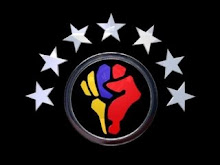



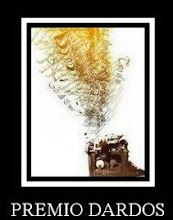











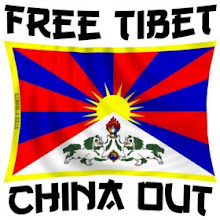










.jpg)


















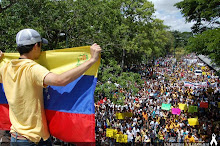





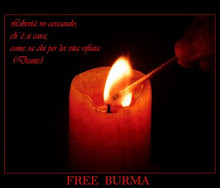

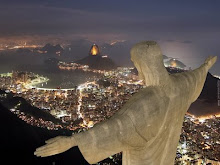




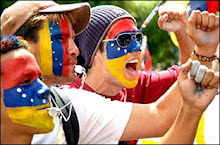

















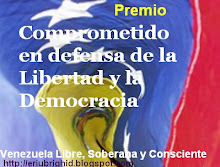









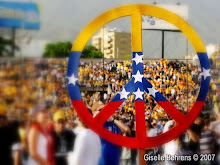





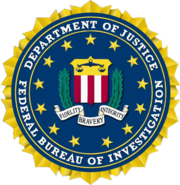



















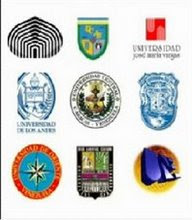


No hay comentarios:
Publicar un comentario